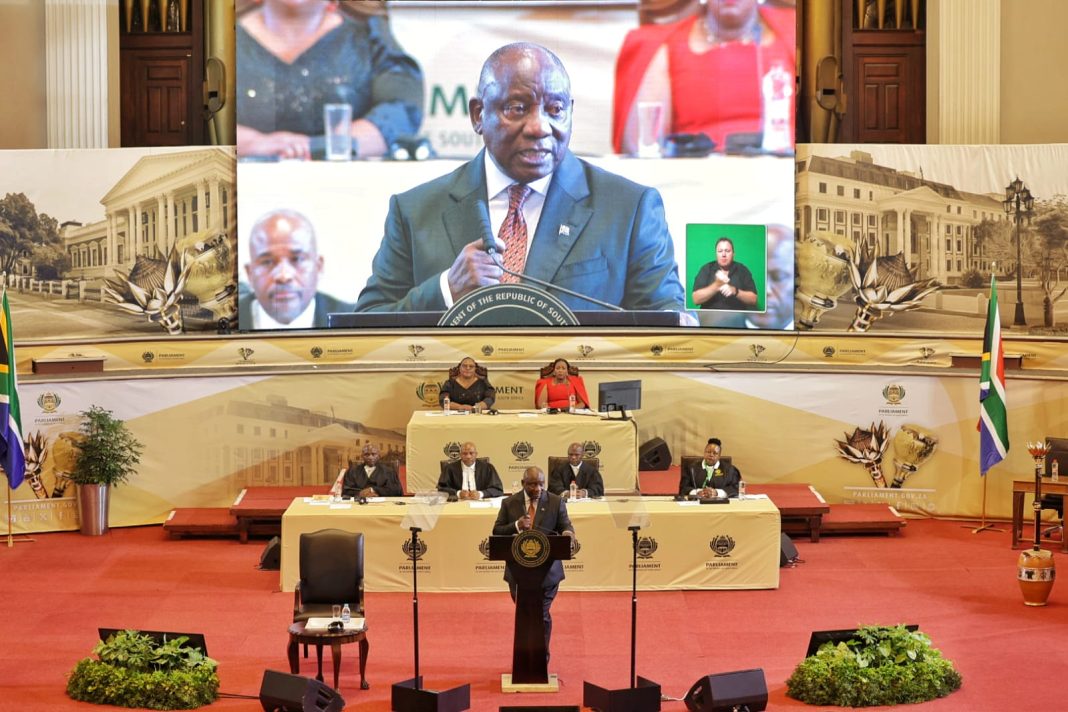By Johnathan Paoli
President Cyril Ramaphosa has announced the government’s plan to strengthen the country’s education system, focusing on inclusivity, quality and alignment with economic needs.
This will help equip young South Africans with the skills and knowledge necessary for personal success and national development.
In his 2025 State of the Nation Address, Ramaphosa outlined a comprehensive strategy to enhance South Africa’s education system.
“Central to our efforts to end poverty and to develop our economy is to provide decent, quality education to every young South African,” he said.
This address, the first under the Government of National Unity, emphasised early childhood development (ECD), foundational literacy, teacher training, legislative reforms, technical and vocational education and support for higher education students.
Ramaphosa underscored the importance of ECD as the bedrock of future learning and development.
He announced plans to register and formalise existing ECD centres, ensuring they were equipped with the necessary facilities, trained educators and quality learning materials.
The president described the initiative as aiming to provide every child with access to quality early learning, recognising that the early years were crucial for cognitive and social development.
A significant focus was placed on ensuring that every child could read for meaning in the foundation phase by implementing mother tongue-based bilingual education, which has been shown to improve literacy and numeracy outcomes.
The Funza Lushaka Bursary Scheme was expected to continue to prioritise students aspiring to teach in the foundation phase.
Ramaphosa said that by attracting and training passionate educators for early grades, the government aimed to strengthen the quality of education from the ground up.
The president highlighted the signing of the Basic Education Laws Amendment Act (Bela) last year, praising it as a pivotal move to make education more accessible and inclusive.
He confirmed that Basic Education Minister Siviwe Gwarube would introduce national policy, norms and standards and regulations to empower all partners to support the implementation of the Act.
To align education with economic needs, Ramaphosa said the government was increasing the production of artisans through Technical and Vocational Education and Training colleges, and combining formal learning with job training, drawing on successful international models.
The president called on the private sector to offer young people experiential learning opportunities during their studies, fostering a skilled workforce ready to meet market demands.
Addressing the financial challenges faced by the missing middle, the government is implementing Phase 1 of a comprehensive student funding model supporting approximately 10,000 students in its first year.
The president lauded the matric class of 2024 for achieving the highest pass rate in the country’s history, with 87% of learners passing their exams and nearly half obtaining a bachelor pass, describing it as reflecting the dedication of learners, educators, parents and communities in striving for academic excellence.
He underscored the government’s dedication to providing equitable education opportunities for every South African child, by stating that over 10.5 million learners attended public school where they were not required to pay fees.
Meanwhile, Solidarity welcomed the president’s commitment to developing the education sector, but warned against undue influence from radical elements and empty promises.
The union agreed with Ramaphosa’s announcement of the norms and standards of Bela, but maintained that it should have been established before the implementation of the legislation.
AfriForum CEO Kallie Kriel criticised the president as “not practicing what he is preaching”, describing Bela as an attack that encouraged division by targeting a specific community.
However, the Democratic Alliance was satisfied with the focus on education. praising Gwarube’s efforts in placing ECD first.
Party leader John Steenhuisen praised the development of ECD as a DA policy, which would ensure that every child received the best possible start in life and a testament to the impact of the party on policy making.
INSIDE EDUCATION







